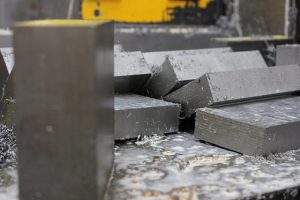 It’s a common assumption that stainless steel is immune to rust and corrosion. After all, isn’t the distinguishing characteristic that sets it apart from standard steel? While stainless steel is “resistant” to the effects of moisture, it may still develop rust and corrosion if certain precautions are not taken. So, how can you protect stainless steel from rust and corrosion?
It’s a common assumption that stainless steel is immune to rust and corrosion. After all, isn’t the distinguishing characteristic that sets it apart from standard steel? While stainless steel is “resistant” to the effects of moisture, it may still develop rust and corrosion if certain precautions are not taken. So, how can you protect stainless steel from rust and corrosion?
What is Stainless Steel?
The term “stainless steel” is used to describe a steel alloy in which 10.5% or greater of its mass is comprised of chromium. The presence of chromium as an alloy helps to protect the metal against the damaging effects of moisture, such as rust and corrosion.
Choose Steel With High Chromium Content
According to some estimates, there are more than 150 different grades of stainless steel, each of which has its unique composition. If you are searching for a stainless steel material that offers a high level of protection from rust and corrosion, it’s recommended that you choose a grade with a high chromium content. Generally speaking, the higher the chromium content, the greater the protection from rust and corrosion. Keep in mind, however, that stainless steel with a high chromium content tends to cost more than stainless steel with a low chromium content.
Keep it Dry
I know this is easier said that done, especially in certain industrial and construction applications, but it’s important for stainless steel to remain dry. Rust and corrosion occurs when metals are exposed to moisture over a prolonged length of time. It doesn’t happen overnight — not usually, at least — but constant exposure to moisture can and will cause rust. The moisture particles will settle into the metal, resulting in new chemical changes known as oxidation. These chemical changes can in turn cause the formation of rust and corrosion.
Passivate It
Arguably, the single most important step towards protecting stainless steel materials from rust or corrosion is to passivate it. This refers to the process of altering the metal’s surface by coating it with a thin layer of chromium. As we mentioned earlier, chromium is highly resistant to moisture; therefore, it’s the ideal choice of metal for the purpose of passivating stainless steel. Passivating should be done on a regular basis to maintain a protective layer over stainless steel, offering a high level of protection from rust and corrosion.
